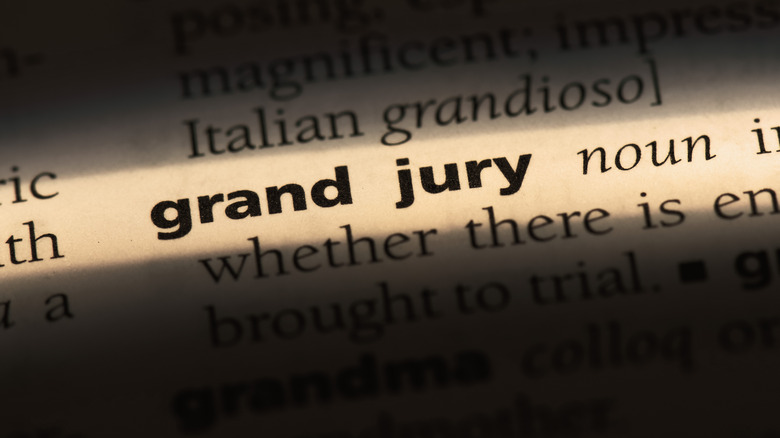Why Is A Grand Jury Called Grand?
We've all heard the term grand jury, but one of the questions asked is: what makes it grand? Juries are, by definition, a group of people sworn in to give a verdict regarding a legal case based on the pieces of evidence presented to them during court proceedings. There are two types of juries in the United States court — the trial jury and the grand jury (via U.S. Courts). A trial jury is what you typically see on televised court proceedings, and the group can consist of between 6 to 12 individuals. After both sides have presented their case, it's the jury's duty to decide whether a defendant is guilty or not guilty.
A grand jury, on the other hand, has a different responsibility. Members of the grand jury only hear one side of the criminal case — the prosecution — and based on the facts that are provided, they must decide whether there is sufficient evidence in order for a trial to proceed, as reported by Mental Floss. In regard to the name, the term "grand" is used simply because grand juries have more members than trial juries and consist of 16 to 23 people.
The differences between a trial jury and a grand jury
Members of the grand jury closely work with prosecutors in order to fully understand what is asked of them. When a grand jury convenes, defendants or their attorneys are not present. Furthermore, the proceedings aren't open to the public, according to the U.S. Courts. In court, members of the grand jury are free to ask the prosecution about the pieces of evidence, and they are free to offer their thoughts on the case to the prosecutor. Overall, a grand jury proceeding is more relaxed than a court trial.
After viewing the pieces of evidence presented, the grand jury then decides if a trial should push forward. If they decide that there is enough evidence, the defendant will then be indicted. The grand jury doesn't have to be unanimous when making the decision; in most jurisdictions, at least two-thirds of the members must come to an agreement, per Find Law.

